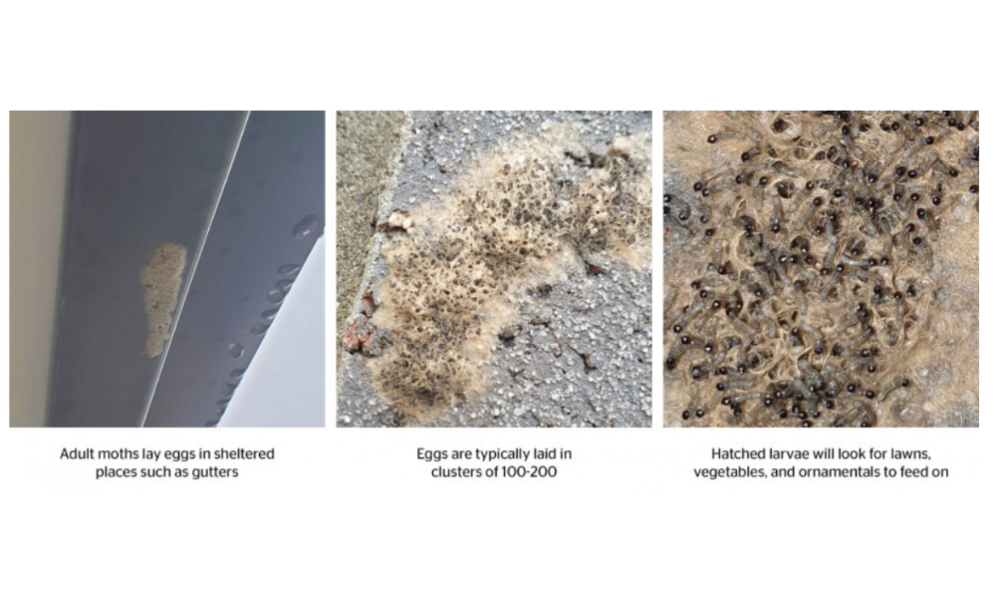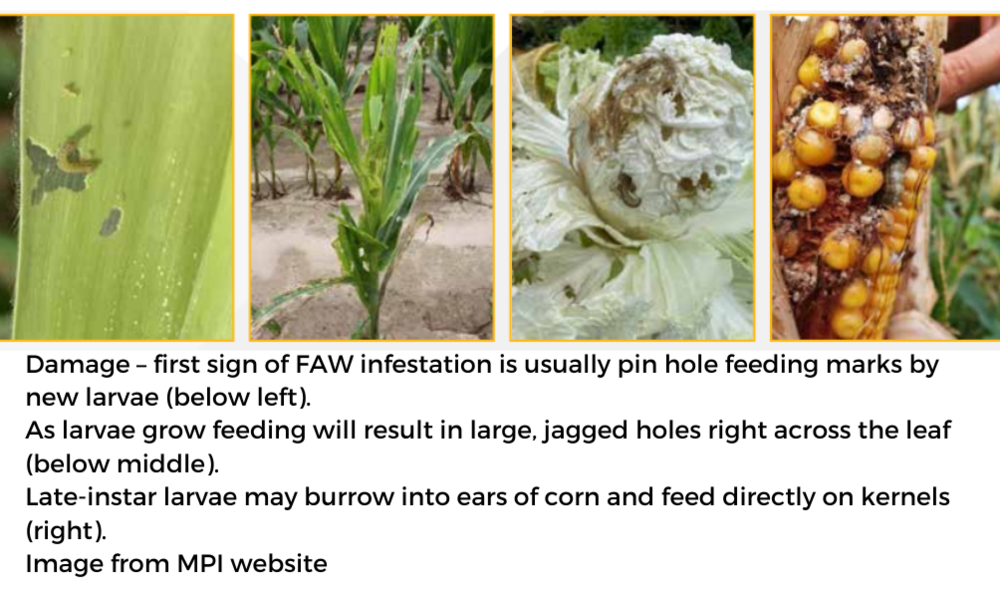Fall Armyworm invading the North Island
The Matakana App
23 May 2023, 8:48 PM

Fall armyworm (Spodoptera frugiperda) emerged as an insect pest, making its presence known in New Zealand in February 2022. This voracious plant pest displays a wide-ranging appetite, targeting over 350 plant species, with a particular fondness for sweetcorn and maize. Exhibiting remarkable flight capabilities, adult fall armyworm moths can traverse vast distances, propelled by the wind over hundreds of kilometres. Additionally, the larvae can be inadvertently transported through various means, such as in cut flowers, fruit, and vegetables.
The destructive impact of armyworms extends to grass and grain crops. They have the potential to decimate grass and grain crops within a matter of days. They also wreak havoc infiltrating our beloved gardens. Under the cover of night, these
insidious worms gnaw at the delicate stems of young plants, including vegetables and ornamentals, seeking refuge in the soil around their attacked prey during the day. Scaling the stems with ease, they leave behind conspicuous perforations in the leaves of a diverse range of garden plants.
Reports from concerned locals confirm the relentless feeding habits of these worms, as they indiscriminately devour vegetables and any accessible resources, even encroaching upon our meticulously cared-for lawns. The aftermath of their feasting manifests as unsightly large brown patches, where armyworms have consumed new shoots and leaf foliage, leaving a trail of damage in their wake.

Image from Kiwicare website
Adult moths lay their eggs in discreet locations, favouring sheltered spots such as the undersides of leaves, soffits/eaves, gutters, high walls of buildings, or even the undersides of washing lines. These eggs are typically clustered together, numbering between 100 and 200, resembling tiny pearls adorned with a fluffy coating. It is important to note that spraying pesticides or fly spray directly on the eggs will yield no impact. Instead, it is advisable to remove and dispose of the eggs by scraping/wiping them away and washing them down the drain or burning them. It is also recommended to clean the affected area with soapy water afterward.

Fall armyworms have now proliferated to such an extent that notifying the Ministry for Primary Industries (MPI) of their presence is no longer a requirement. The North Island, with its warmer and more humid climate, has become a particularly favourable environment for armyworms to thrive. Unfortunately, complete eradication of these pests from New Zealand seems improbable, as their arrival via wind currents from Australia remains beyond our control.
In response to this ongoing challenge, people have turned to various products and methods, reporting varying degrees of success. Among the options preferred by individuals are natural and non-pesticide solutions, such as a mixture of 3 tablespoons of washing up liquid diluted in 5 litres of water, which can be sprayed on affected plants and repeated after 7 days. Another alternative is the application of a diluted neem oil solution to deter the pests, both on the plants and in granular form around them.
--- For all your tree cutting needs, as well as hedging and palm work talk to Green Matter ---
Recognizing the need for a comprehensive approach, in April 2023, Biosecurity New Zealand and sector partners reached a consensus to conclude the immediate response to fall armyworm infestation and redirect their efforts towards long-term
management of this persistent pest.
Help track the distribution of fall armyworm
Farmers and growers should continue to look out for FAW on their properties to help with the long-term management of the pest.
If you suspect fall armyworm on your property, contact your crop manager or industry group for the actions to take and advice on the best management options for your crops. Contact the Foundation for Arable Research (FAR) if you have any questions about the long-term management programmes for FAW. You can email FAR at [email protected].
For further resources including images, guides, and identification check out the Ministry of Primary Industry (MPI) website https://www.mpi.govt.nz/biosecurity/exotic-pests-and-diseases-in-new-zealand/long-term-biosecurity-management-programmes/fall-armyworm-in-new-zealand/?fbclid=IwAR36uzm0xT7LyX8q3xMRycheZjzbfgBPiQsK757sni4idoRMapvYr5ryE9g



